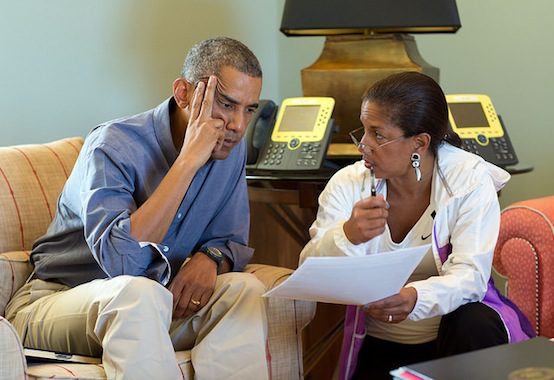October Has Come, But Not Gone
I have previously written for TAC about the October Surprise of 1980, how it developed, and what impact it might have had on the election of Ronald Reagan. The “Surprise” was arranged through a secret agreement made between some associates of the Reagan campaign and the Iranian government.
Those who follow the international media are aware that there is intense interest worldwide in the upcoming U.S. election. The general consensus in Europe and much of the rest of the world is that Mitt Romney’s foreign policy would be dangerous, as he reminds other nations too much of George W. Bush and has, in fact, surrounded himself with Bush’s neocon advisers. Most countries are spectators as the campaign grinds on, even if there has even been considerable controversy over Israeli Prime Minister Benjamin Netanyahu’s involvement. Netanyahu’s frequent demands for red lines for an attack on Iran and his appearance in television ads that would benefit Romney were provocative, but it does not seem that he will not do anything dramatic to alter the course of the election.
Yet that is not necessarily true for Iran, which could well be on the receiving end of Romney’s attentions in the form of a “preemptive” military attack. Iran just might be in position to do something to influence the course of the election, as it may have done in 1980.
Iran is experiencing serious economic disruption at the moment, partly caused by sanctions but also due to distortions in its internal economy. It has also reportedly proposed a new plan to resolve the problems relating to the country’s nuclear program, a proposal that it has also denied making and which has already been rejected by Washington. But what if Iran were to make the political calculation that (a) it must act to make it appear to the Iranian people that is doing something about its economy, and (b) that Obama would be a much safer choice than Romney, and (c) that since it has no actual nuclear weapons program it can easily make an offer that Obama cannot refuse, negotiating away something that it does not have, probably along the lines of the nine-step proposal that it may or may not have already made? It can always renege on the deal anyway based on some technicality after the U.S. election is over. As a probable quid pro quo for accepting most of Washington’s demands, Iran would have at least some sanctions lifted, lessening the pressure on its economy and showing good will. For Obama, it would be a diplomatic triumph vindicating his negotiations policy, at one stroke disarming the nation that is frequently being described in the campaign as the greatest threat to the entire world and possibly guaranteeing reelection. For the American people it would likely mean canceling the third Romney-Obama debate on foreign policy, freeing up the evening for the “Dancing with the Stars All Stars Gala.” It’s a win-win-win for everyone.
I am not suggesting that any of the above might actually happen, but if I were the Grand Ayatollah Khamenei I would certainly be thinking in that direction.
